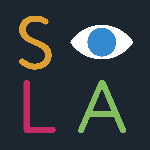Our sixth Illustration West 61 interview is with Vanessa Lemen. Board member Jon Messer, Secretary, conducted the interview with Vanessa.
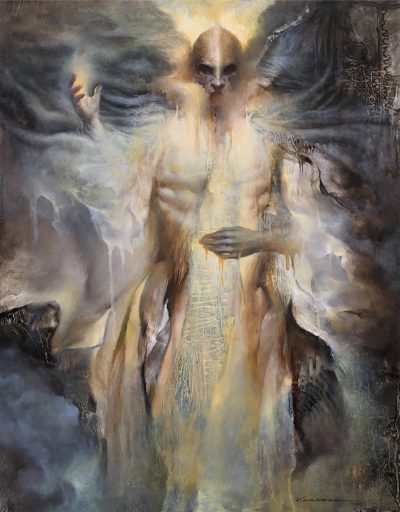
What inspired you to become an illustrator?
A deep love for making art. To be an illustrator, to be a painter, fine artist, visual artist, whatever you want to call it, it came from that deep connection with the making of art and storytelling and speaking in that form that inspired me to want to be doing that as much as I could.
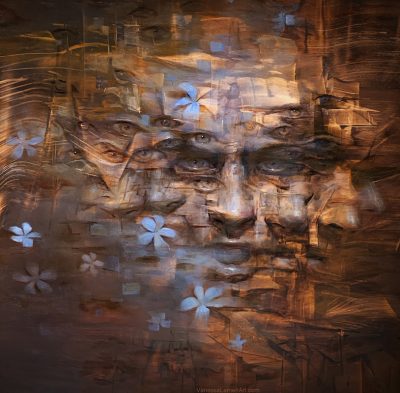
Where did you grow up and did that have an influence on your artwork?
 I grew up in a town called Fair Oaks in Northern California, and it absolutely had an influence on my work. I feel like that would be inevitable and that where and how we grew up is an integral part of the shaping of who we are. Whether we intentionally include elements from it, or intentionally choose to go away from it, that would absolutely show up in our work, even unintentionally, and that could be in all sorts of different ways from aesthetics to story and experiences.
I grew up in a town called Fair Oaks in Northern California, and it absolutely had an influence on my work. I feel like that would be inevitable and that where and how we grew up is an integral part of the shaping of who we are. Whether we intentionally include elements from it, or intentionally choose to go away from it, that would absolutely show up in our work, even unintentionally, and that could be in all sorts of different ways from aesthetics to story and experiences.
What genre of illustration holds your imagination and can you say why?

Well, this isn’t necessarily about genre, but speaking solely in terms of holding my imagination, I think the part of illustration that tend to do that the most for me is that something that invites us in, fills us with curiosity, wonder and intrigue. It allows for the story to unfold the more we look, and stays with us long after we’ve spent time with it in front of us.
Is there a cultural component to your love of illustration?
Yes, I tend to paint about my surroundings and current happenings, humanity overall and human nature, the inner workings and connections of us as humans, to one another, to ourselves, to our surroundings, to other beings, to the unseen and intangible.. which develops a connection and universality in scope, even in its seeming outward diversity, and each piece might tend to shapeshift in focus and story because of that.
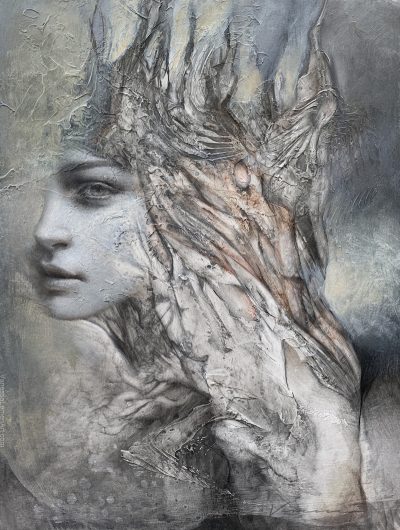
Where did you get your training?
From all sorts of places- university, life, other humans who share, independent studios/ateliers/schools, workshops, lectures, teaching, experimenting, on-the-job, making mistakes, failing, persistence, resilience, adversity, non-art-related experiences, observing, seeing, listening, doing, using all of my senses, being mindful and attentive to my surroundings and to other beings and to myself. It’s constant and infinite and didn’t just end when I finished and graduated from university.
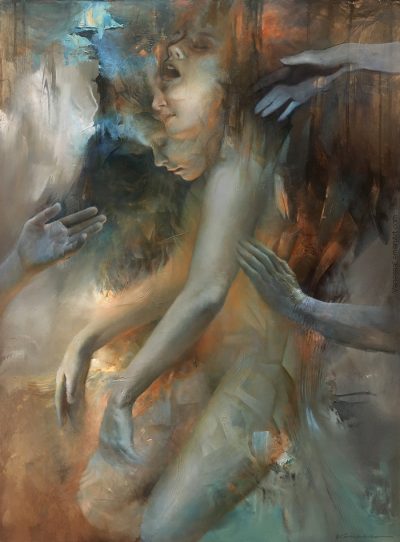
Do you feel the fundamental skills are still important in professional illustration?
Yes, absolutely. The combination of fundamental skills and life experience creates our own unique vision and story. The fundamental skills give us the foundation and strength to form the rest of the vision. With those skills, we gain the confidence, having that foundation engrained in us which becomes second nature as we explore beyond it.
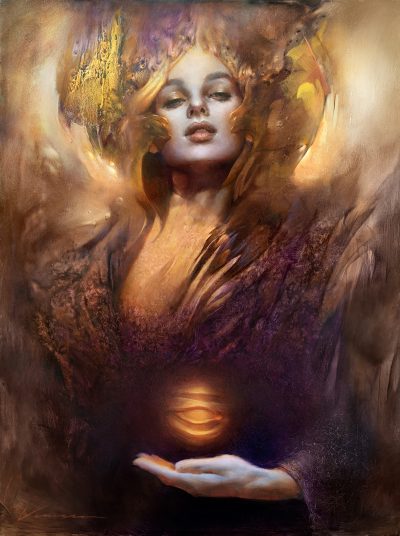
When did you get your first paying commission?
Well, that would’ve been in high school. Back then, it wasn’t that the pay was a competitive wage by any means, but these sorts of gigs gave me experience in that aspect too. I did all kinds of things, so the first sort of paying work was for anything from large scale hand-painted displays or murals to someone buying my paintings to designing products or spot illustrations for local businesses. In hindsight, it was all very low-key and I was a beginner for sure, but it was big for me at that time, and important to my experience as a whole.
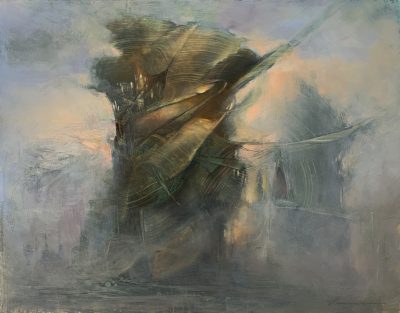
Was there a particular assignment that changed your trajectory? If so how?
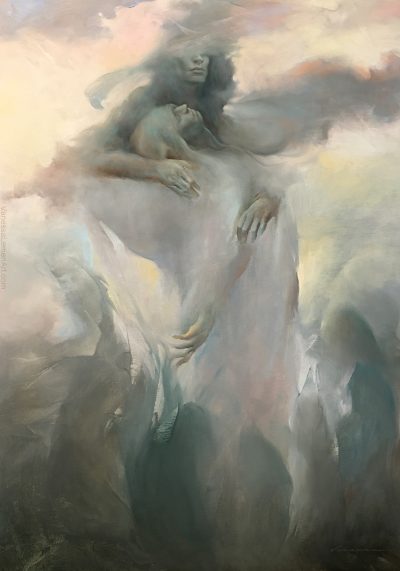
Not as much a changing of trajectory, but there are several moments in my life that I can point to for challenging me and further developing my intention and purpose. In terms of assignments, one would absolutely be illustrating The Left Hand Of Darkness. Another would be a personal series, my Liminal Beings solo exhibition. Both are different in some ways, but similar in that they challenged my perception and view, opened my eyes and mind to much more than I had been seeing prior, and I find those types of projects help to make me a better human, which will reflect in the work I create and the message I share.
Can you share some highlights from your career?
Meeting and getting to know the people behind the work they do. There are way too many of those to mention here in a short answer, and not all are artists or art-related. But hands down, meeting the good humans who share their stories and take so much care in sharing with others and cultivating their vision is such a wonderful thing that I’m so grateful I’m able to say has happened in my life.

What forms of media do you use and enjoy? Are there any that you avoid?
I use all sorts of different forms of media and enjoy them all, honestly. I love to experiment with new and different things a lot. I use many unconventional tools and non-art-things to make art and to think things through in general, to be challenged too. The forms of media that allow for that journey into unknown territory and a way of transcending the thinking to just be there in the moment and immersed in that experience – those are the moments that I enjoy so much.
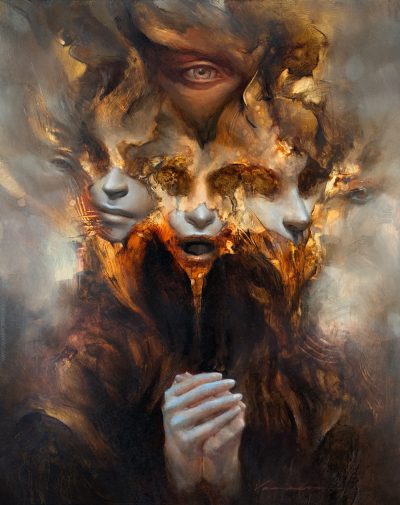
Do you have career or training advice for artists?
There is a Mary Oliver quote I’m thinking of right now, so I’ll share that: “The soul exists and is built entirely out of attentiveness.” In terms of career or training, if it makes more sense here to swap the word “soul” with something else like “story” or “vision” or “voice” or even just “art”, then try saying it that way, but the point is that we have to remain open and attentive (we have to do the work) for that world and what’s in it to exist, and for it to unfold and flourish.
Do you create in other forms of art?
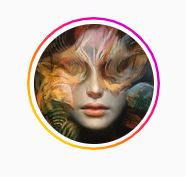
I play my keyboard in my studio, make sounds with my voice, and play other random instruments. Music is a big part of my everyday as well as all the forms of visual art I do. I also enjoy movement, usually to music as well, and enjoy spending time making short videos that are just for myself to learn about editing, timing, and observation, speaking with visuals, sound and surroundings, sharing how I see. All of these other forms of art help in cultivating and gaining a better understanding of how I share that visual language and bring intangible concept to life.
All artwork ©2022 Vanessa Lemen, not for re-use without permission of the artist.
